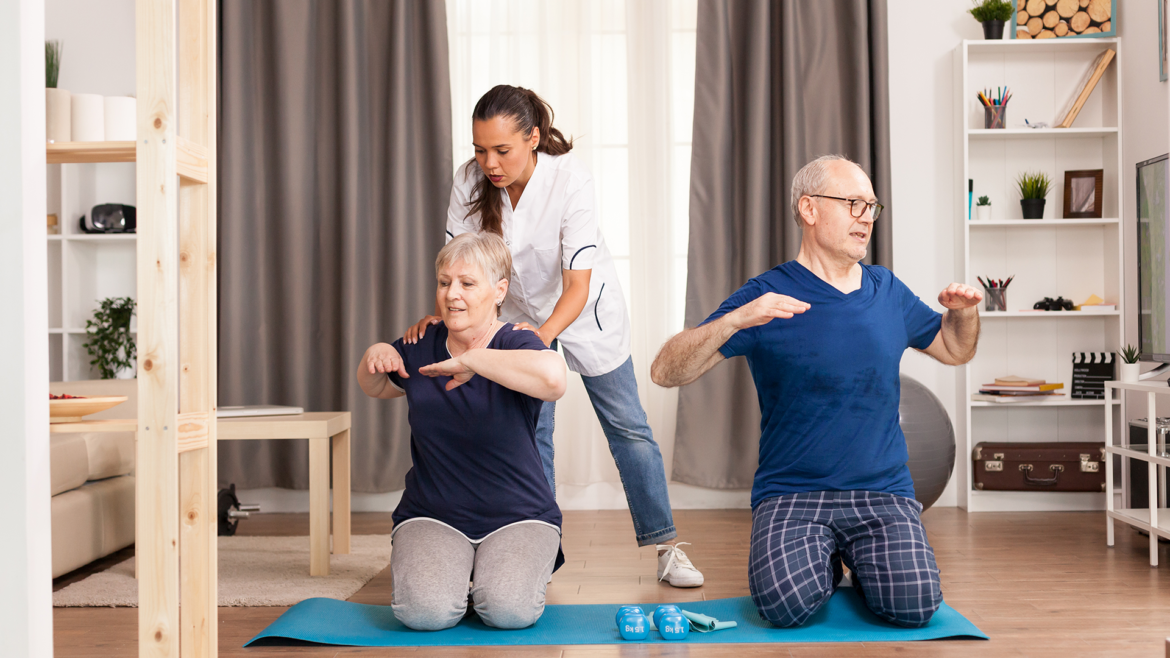A daily gym is organized for mobile clients. For more mobile and immobile clients and those who have acute or chronic problems related to the locomotor system, an individual approach to problem solving is offered.
occupational therapy and various types of massages are also available to clients.
Physiotherapist is a healthcare worker who manages the physiotherapy process. Works with people of all ages to preserve and improve health and support function and autonomy when individuals have problems caused by any disorder that affects the trigger system and/or disability that is a product of those disorders.
Physical therapy needs of the elderly
L' goal of physical therapy for the elderly is to encourage people to physical activity. It is a misconception that older people are sluggish and have difficulty moving and that they do not need physical activity. On the contrary, people who regularly engage in physical activities, either recreational sports or walking, are more mobile and their locomotor system is in better shape. Also, such habits result in better coping with possible illness, and the impact of physical activity on mental health is well known. During the process of biological aging, body systems and functions inevitably decline, for example, in addition to muscle mass, height decreases by about 5-7 cm depending on gender and physical constitution, disturbances in tissue oxygen supply and consequently reduced endurance. These physiological, natural processes can be additionally burdened by chronic diseases,
- rheumatic (arthrosis, spine diseases, extra-articular rheumatism),
- neurological (conditions after cerebrovascular injury, Parkinson’s disease),
- cardiovascular diseases (high blood pressure, angina pectoris, heart rhythm disorders),
- respiratory (bronchitis, asthma, chronic obstructive pulmonary disease)
- urogenital (infections of the urinary tract, prostate diseases, incontinence)
These are just some of the chronic diseases that cause a decrease in the mobility of the locomotor system, making it impossible to perform daily activities (reduced ability to take care of oneself).
Quiet times receive both immobile and comfortably mobile clients who need daily physical therapy and are extremely necessary to prevent complications of long-term lying down (decubitus, congestive pneumonia, contractures, thrombosis).

